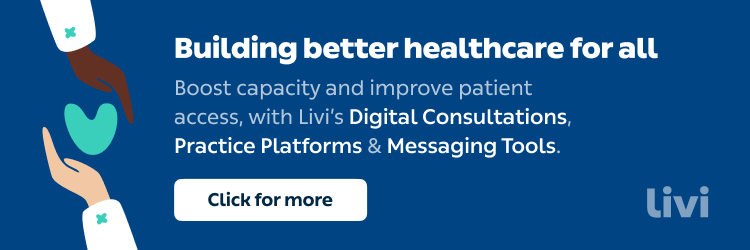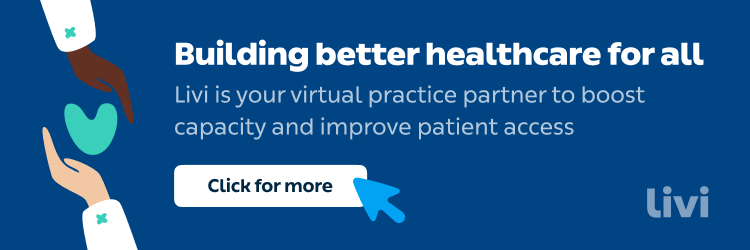
Lyndsey Reeves
Director of UK Operations, Livi
Learn how digital healthcare can widen access to health systems, reduce inequality of care, personalise treatment pathways and improve patient outcomes.
Today’s health systems struggle to increase access amid limited resources, complex needs and changing patient demand. However, digital solutions can enhance primary care and increase capacity, insists Lyndsey Reeves, Director of UK Operations at digital healthcare provider, Livi.
Accessible care through digital innovation
Digital-first primary care optimises clinician time and resources, tailors treatment paths, reduces expenses and, importantly, expands patient access. For example, if a GP practice integrates innovations such as video appointments and digital practice management tools into existing systems, it could reach more patients and increase efficiency.
“We need solutions that enable greater access,” says Reeves. “Digital is a huge part of that because it gives patients the opportunity to access care from wherever they happen to be.”
Combining clinical resources with technology to offer digital consultations, practices can increase capacity to meet patient demand and tap into a remote GP workforce across the country.
We should be able to access care in the way that suits us, via a number of digital platforms.
Digital tools including messaging platforms can improve patient engagement, enabling patients to book or manage appointments and access wellbeing and self-care advice. Remote monitoring and batch messaging tools facilitate video consultations and enable practices to send automatic reminders, questionnaires and messages.
When integrated into healthcare systems and combined with care provision, digital solutions reach underserved communities, offering scalable care pathways designed for patients and simplifying access to the right care, at the right time.
Supporting the digital transformation of healthcare
However, challenges must be overcome. Government can do more to support the transformation of healthcare by helping the NHS connect with digital infrastructure and systems partners at scale, argues Reeves. Currently, partnerships are too small and funding for digital solutions is too localised and short-term — so the answer is the development of a national, long-term funding strategy.
“NHS England’s General Practice Forward View (published in 2016) committed to five years of funding to facilitate the implementation of digital solutions such as bulk messaging software and WiFi in practices,” she says. “Something similar is needed now so that further solutions can be put in place over a longer period of time.”
Reeves believes that patients would welcome it because, these days, they don’t need persuading to embrace digital tech. “Digital has a huge role to play in helping patients to connect the dots in their care journeys, particularly for those living with long-term conditions and chronic illness,” she says. “We should be able to access care in the way that suits us, via a number of digital platforms.”





